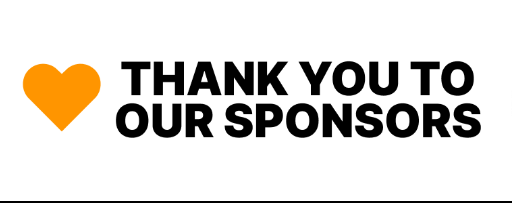Building a Winning Routine
Mental Trading Coach Jared Tendler discusses some key concepts to assist traders, athletes and professional poker players alike!
Confessions Of A Market Maker Report is a daily newsletter that breaks down the strategic thinking, business and money behind trading. If you are not already a subscriber, sign up and join 200,000+ others who are part of our TPlusTwoHoldings community.
Routines matter. The reality is, every day you have to earn your A-game. You can’t expect it. That’s why you need to develop a winning routine.
If you want to reach a high level consistently, preparation is your primary tool. In arenas such as poker and trading, where so many variants that impact your results are external and completely out of your control, strong routines are your opportunity to gain command of internal factors that you can control. While they don’t guarantee that you will perform at your best, they do make it more likely.
Even more importantly, when circumstances line up to make your B and C-game more likely, preparation is what allows you to recover more quickly, an ability critical to maintaining high performance. This is especially true when you’re in a high-pressure situation, such as the World Series of Poker (WSOP), which is going on right now. It’s a torture test of trying to play high-level poker for seven straight weeks with life-changing money on the line. You better believe your routines matter then.
The truth is, anything you do consistently, whether it’s your intention or not, is a routine. If you drink six beers every night and then go to bed at 2:00am, that’s a routine. I wouldn’t call that a winning routine, but it’s still a routine.
The key to a winning routine is defining the purpose of the routine in question and then building it out with the right elements. For example, the goal of sleep is to be well-rested and refreshed for the next day of poker, trading, golf, etc. Once you factor in what your morning routine looks like and what time you have to get up, and then account for around eight hours of sleep, you’ll see a winning routine is likely an earlier bedtime and waking up without a hangover.
When it comes to your Mental Game, I typically focus on four major areas for winning routines:
Daily Overall Routine
Pre-Session Warm Up
In-Session/Tournament Routine
Post-Session Cool Down
It’s important to note, however, that changing a routine takes work. It doesn’t happen by magic or overnight. If your routines need improvement, start small. Look for just one thing you can add that can make a slight improvement. Over time you can continue to build and add elements to create the best routines for you.
Daily Overall Routine
Your daily routine covers the basics: what and when you eat, exercise, recharge, and sleep. What do you need to be at your optimal level of energy while trading or playing? Pay attention to how each of these factors influence your state of mind and emotions, then create, and stick to, a routine that gives you the greatest chance of success. Remember, if your optimal routine requires drastic change, it’s OK to build in elements over time. You want to develop a routine that sticks with you long-term, and not something that just falls off like a bandaid usually does.
This is particularly true if you are at a pivotal time, such as the WSOP. If that’s the case, pick just one thing, such as committing to an extra hour of sleep a night.
Pre-Session Warm Up
Before you begin trading or playing poker, you need to get your mind ready – much like an athlete readies their body to compete. Without this, you won’t be sharp when you start and are at risk of mistakes or missing opportunities.
There are a few key elements to include. You want to narrow your focus and remove any potential distractions, then review your decision-making process or actually practice making decisions. Why? Because your decision-making process is akin to the performance feats you see professional athletes display on the field. In the same way they do certain drills to be physically ready, you need your decision-making process to be ready to go.
Your warm-up should also include a strategic element. What is your game plan today on a strategic side? For traders, that sometimes means reviewing overnight sessions, looking at stock screeners or TA levels, and gauging what symbols you are looking for that day. Poker players might be looking at what the game plan is for a particular event, how many bullets you’re going to fire, and what adjustments to make based on table draw. Both traders and poker players should also include a mental game plan to address the problems that are most likely to affect you – such as tilt, boredom, focus – and have Injecting Logic statements and maps present and ready.
In-Session/Tournament Routine
Breaks during the day are a critical component of remaining effective and energized. Tournament players need to remember to use the designated breaks to rest and recover, not burning energy complaining about bad beats.
Traders and cash game players don’t necessarily have predetermined breaks, which means you have to decide when to take them over the course of the day. My best advice here is to not wait until you need it. Find your trend, or key on early warning signs, so you can take a break before your energy nosedives. If you wait until you really need a break, you have waited too long and it will take longer to recover. Take a break a little earlier and you’ll be able to stay at a higher level longer.
I know, I know. You feel the pressure to stay in it. If you’re not trading or playing you can’t make money. Of course, you don’t want to step away. But fatigue decreases your ability to control your emotions and emotional volatility increases your chances of making a mistake. Calculate the benefits of how regular, 5-10 minute breaks will allow you to perform better and avoid big mistakes, and it’s a no-brainer.
Post-Session Cool Down
What you do after the session or event is all about tomorrow. If you are never going to trade or play poker ever again there’s no reason to cool-down. I assume all of you intend to trade or play poker again, so suck it up, put away the excuses, and do the cool-down, even when you don’t want to. Why? It makes it easier for you to consistently reset and show up the next day refreshed and clearer than you would be otherwise.
If you don’t, the chance you will make the same mistake again goes up and nothing is more frustrating than making the same mistake over and over. Too often people treat recurring problems as isolated incidents. Or, they think because they see it, they will automatically prevent it from happening in future. Not true. Repetitive patterns need to be worked through. If it was simple, it would have been solved already.
Plus, accumulated emotion is a real hidden danger. The importance of being able to get ahead of problems and be proactive cannot be underestimated. Again, this is especially true for our friends currently at the WSOP. Sometimes you don’t know you have a problem until it’s suddenly overwhelming. But when you have emotion from losses, suck-outs, mistakes, the tension of playing against better players, or being in big spots, all of that extra emotion can very easily be a difference maker on whether you play your best or make some big mistakes.
If you are building out your cool-down, there are a number of options but, in general, you want to capture the learning/lessons/mistakes from a strategic/technical/mental standpoint. If you take notes throughout the day, you can build on them or review them like a daily report. Doing something is better than nothing and doing more, if it is not arduous or painful, is even better. It could be 5-10 minutes, or 20-30 minutes.
On days where there was some significant emotion, the goal is to reduce the chance of that emotion carrying over to the following day. If you have the energy, do a Mental Hand History. At a minimum, do a brain dump, writing out everything in your mind, what happened, what the emotion was, what the trigger was, any other key details of the hand/trade/situation that can easily get lost. Sometimes we rely too much on our memory. As soon as you walk away, details start to disappear. But those details can be the key to solving the problem and minimizing the chance it’s going to happen again.
Obviously there are no guarantees that winning routines will translate into winning results, but they definitely increase the probability, and who doesn’t want that? Be sure to visit more from Jared Tendler at “Mental Trading Coach Web Site”
Advertising & Sponsorship opportunities are available with our team - reaching over 300,000 across all our platforms. Send inquiries to mTradingmedia@gmail.com
Microefutures Trading Room Community & Confessions of A Market Maker podcast
Share
Previous






